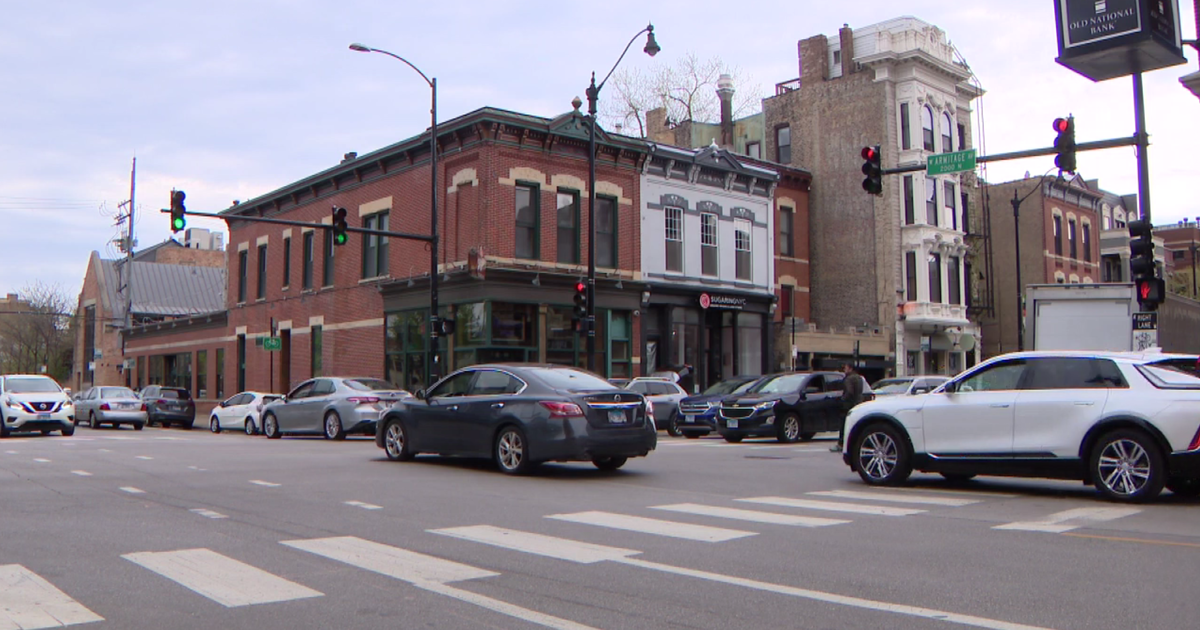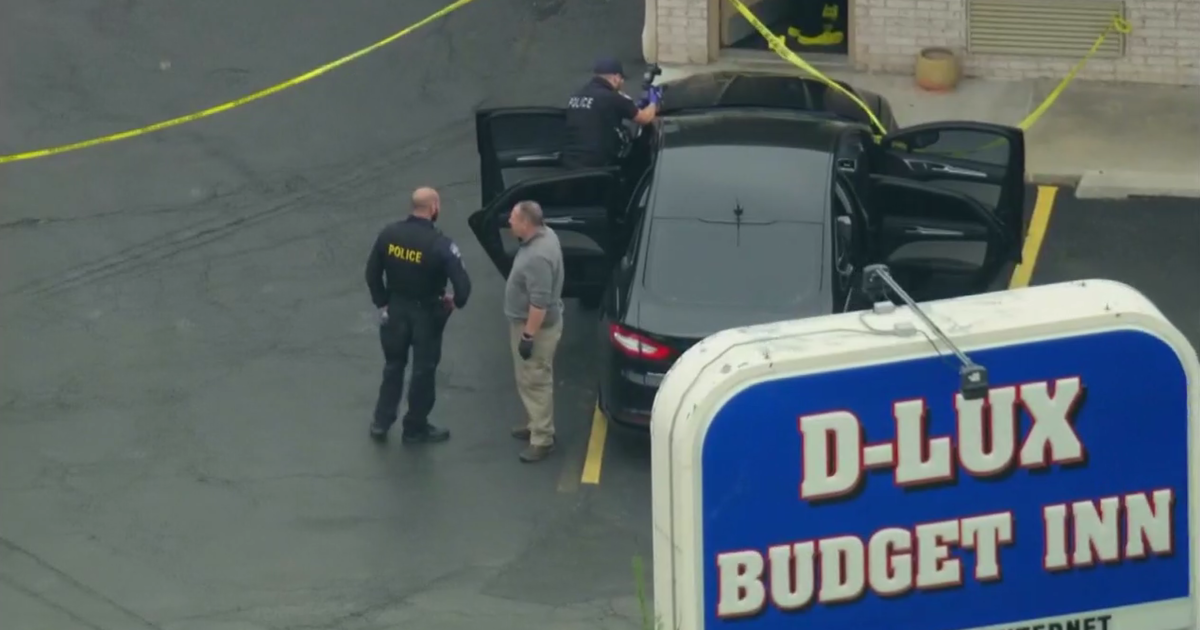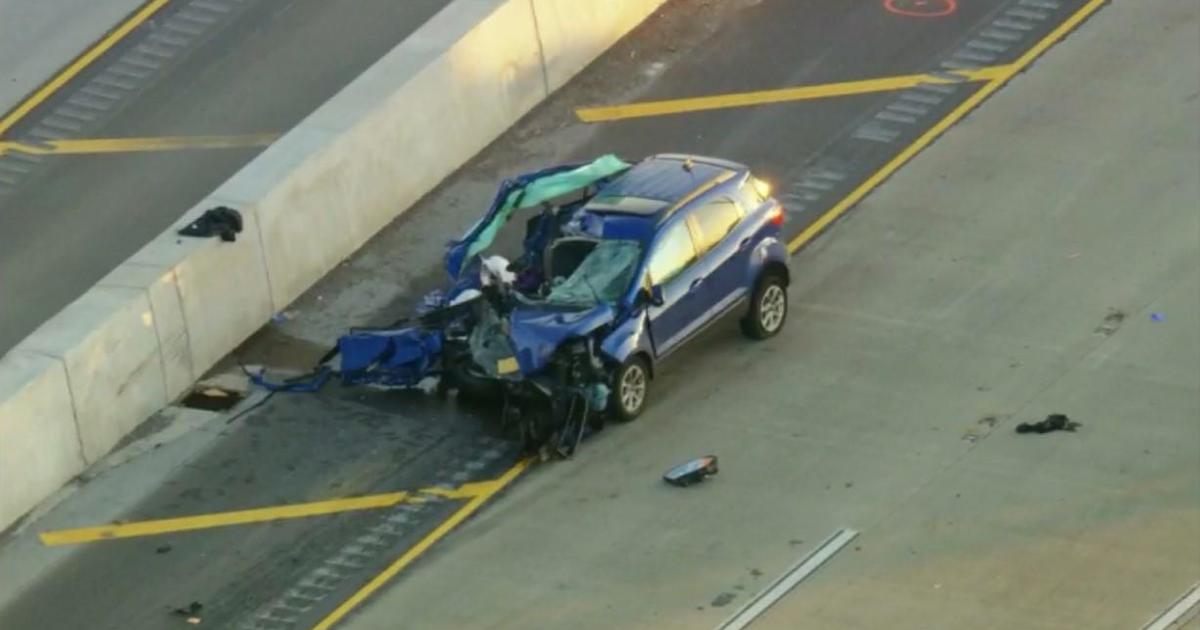Suicides Way Up On Naperville Railroad Tracks
NAPERVILLE, Ill. (CBS) -- Four times in the last six months, men from Naperville have stepped in front of a train and ended their lives.
Authorities have not finished investigating all the deaths, but believe they were intentional.
A recent Northwestern University study identified DuPage County as the metropolitan Chicago region's highest-risk county for deliberate train track fatalities, with 5.1 suicides per million people — well more than twice the aggregate six-county risk of 2.0.
LISTEN: WBBM Newsradio's Nancy Harty reports
Podcast
Chip Pew, Illinois rail safety education coordinator for Operation Lifesaver, Inc., said on average, there are 12 to 15 track suicides statewide every year.
But Pew said last year, the number jumped to 40, and "one would have to think that this is somehow related to the economy."
Dr. Fatima Ali, a psychiatrist affiliated with Linden Oaks at Edward and DuPage Mental Health Services, has been seeing a lot of adults who are grappling with crushing economic crises. Often they are overwhelmed by the abrupt dive in the value of assets they have spent their adult lives accumulating, a change of fortune that has caused their circumstances to diverge sharply from what they had envisioned.
"You expect by your middle age to be doing well," Ali said, adding that men — who represent three out of four suicides — are most inclined to tie their financial success to their personal worth. "If they have lost that, or (have) a fear of losing that, they might consider ending their lives so they don't have to deal with the shame, they don't have to deal with the guilt."
Because deliberately dying in a manner as public as a suburban train track brings in engineers, rail crew, passengers and other strangers, Pew said its impact is considerably more profound than more common methods of suicide, such as firearms and sleeping pills.
"The additional tragedy, other than someone taking their own life, is that death by train involves other people," he said. "The overall trauma effect is much more broadening."
Ali said whether it is done consciously or not, a purposeful public death sends a message.
"They're looking at a sure-shot method that they will definitely die," she said. "And I don't know if they're thinking about it rationally, but it's a dramatic way of telling the world how much that they hurt."
Often a violent suicide conveys a great deal of anger, she said. Pew surmised that a train offers a violent option for someone who can't or doesn't want to go out and buy a gun.
"Certainly being struck by something weighing 12 million pounds, it's a certain death," said Pew.
He said a suicide expert who appeared at a recent regional conference said that when people end their own lives, what's important to them is not so much the means as reaching an end to their pain.
"There's something more sensational about a person being hit by a train that's carrying 1,500 people," Pew said. "And it affects so many lives."
No one can know with absolute certainty whether or why the four Naperville men chose to end their lives using trains. One suffered from chronic health woes, another battled alcoholism for much of his life, the third was a high school student, and the fourth was a retired North Central College professor.
When someone is at risk for suicide, it is important for others to step in when they can. Those who are struggling need to know they can get help, Ali said.
It's not always detectable, but those near them can help if they recognize the signs of trouble, including increased moodiness and irritability, isolation, and changes in routine. In an adult, that might take the form of missed work days. A teen might show severe depression by letting schoolwork go. Sometimes the person begins giving away possessions. And it's not unusual for their mood to be noticeably improved just before they go through with a suicide attempt. There is an elevation in disposition, Ali said, that can come with having made a decision to end the pain that outweighs its finality and the knowledge of the heartbreak it will bring to loved ones.
Prevention measures also can be taken on the community level. Pew said Villa Park is among the towns that have posted suicide hot line numbers along the tracks. Physical barriers also might help.
"We have considered looking potentially at deterrent shrubbery in those areas where trespassing may be more abundant," he said.
Bystanders also might be able to thwart those intending to end their misery on railroad tracks, Pew said. At commuter stations such as the one near downtown Naperville, passengers tend to be "creatures of habit," essentially tuning out their surroundings. If they pay closer attention, it could be the difference between life and death. "We ask people to maybe be a little more observant," he said. That means if someone is standing near the track and appears preoccupied by the rails, or is making notes or excessively checking schedules, that needs to be noted.
"If people get an intuition in their gut, maybe they should contact the authorities," Pew said. "If we can catch them proactively — it's a real hard thing to get your hands on, because we have almost 8,000 crossings — but maybe it can be prevented."
The Naperville Sun contributed to this report, via the Sun-Times Media Wire.



